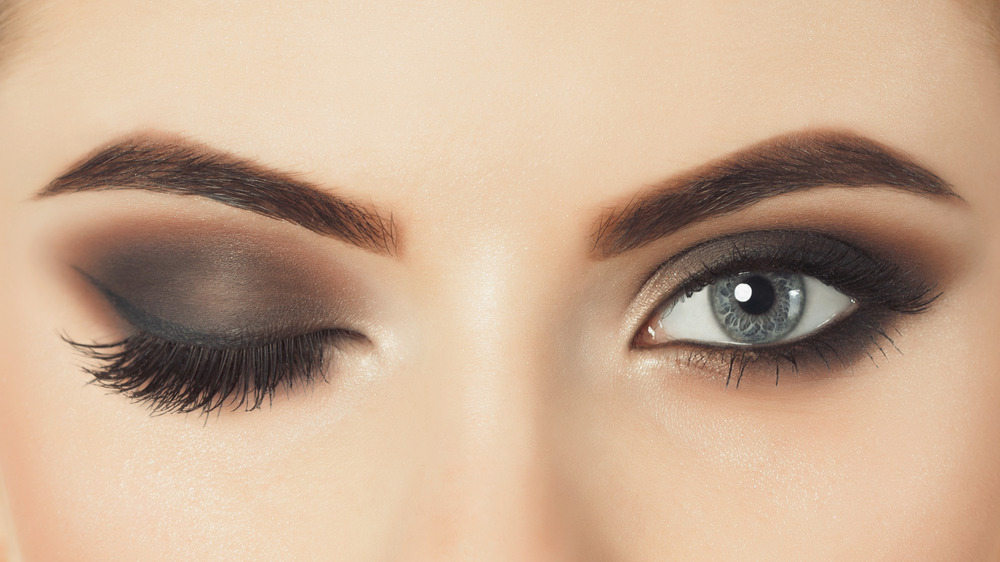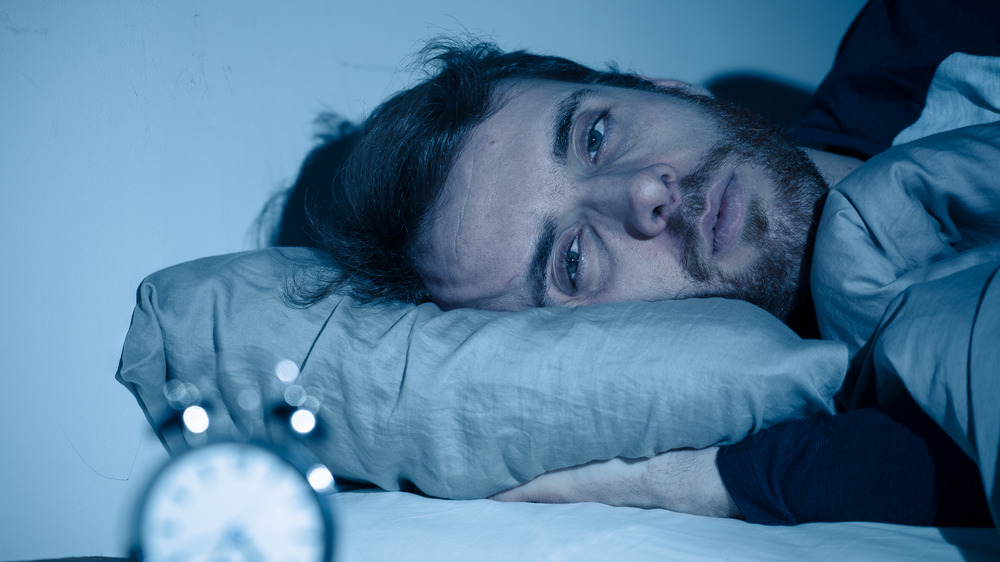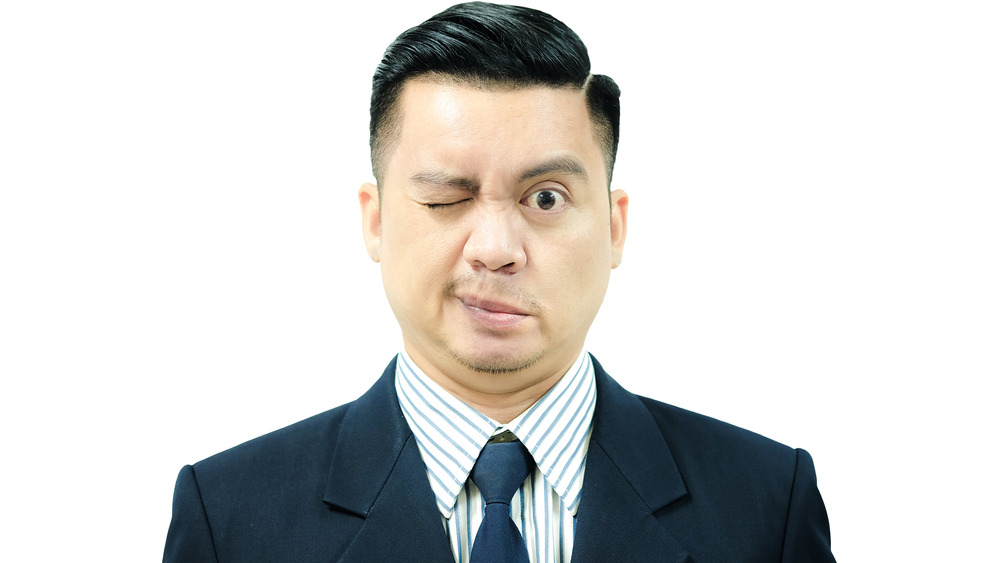Can You Actually Sleep With One Eye Open?
Getting a good night's sleep is one of the most impactful and overlooked pieces of the human health puzzle, and for many, it's also one of the most enjoyable parts of the day. When our eyes shut and our head hits the pillow, we get to take a load off from our busy schedule, relinquish our mind to the wondrous dreamland waiting inside, and get a much-needed recharge on our metaphorical batteries. Yet, there are nights we don't always get or want to shut our minds off to this extent. There are even times when taking a night-long nap might be downright dangerous.
That's where the phrase "sleep with one eye open" comes from, those nights we don't feel comfortable enough to be at our most vulnerable. It's the reason the phrase has become simultaneously a sort of theatrical threat and the proposed protected mechanism to survive whatever the threat has implied. With one eye open, we're alert and ready for any baddie that might be coming our way, but that's only if we could pull it off. To do so, we'd have to fight every impulse our nighttime physiology sends through us, and the success of doing so would wreak havoc on our ability to function the next day. With that out in the open, we should probably ask: "Is it even possible to sleep with one eye open?"
Metaphorically sleeping with one eye open
Sleep isn't the same across the animal kingdom, and there are a few animals, such as the whale family and certain birds, that sleep in an almost magical fashion. It's called "unihemispheric sleep," and during that sleep, one eye remains open, and it does so because only half of the brain is asleep at any given time. It sort of alternates, allowing these creatures' brains to be both conscious enough to survive and unconscious enough to recuperate. Well, according to a study published in Current Biology (via Science Direct), humans pull off a similar trick in specific situations.
The study suggests people can enter a state where half their brain is in a deep sleep while the other remains in a lighter sleep as to be more alert during threatening situations, such as sleeping in a new place for the first time. It's unclear if one eye actually remains open when we do this, but it's metaphorically equivalent, so we're gonna roll with it. It's also not the only sleep trick of this nature humans can do.
According to the PBS documentary Mysteries of Sleep, humans are capable of "sleeping with one eye open," both eyes really, in a state known as microsleep. The phenomena happens when the mind is severely sleep-deprived. The brain will shut down sections for waves of sleep that last just seconds at a time while the subject is seemingly conscious. Kind of like when we nod off during a Lord of the Rings marathon.
It can happen physically, too, but it's probably not good
As Silicon Valley Eye Physicians explain, not all of us sleep with our eyes totally closed in the first place. About 20 percent of people walking around out there sleep with both eyes open or, at least, partially open. Yet, two isn't the same as one, and most of the reasons a person sleeps with one eye opened aren't exactly pleasant.
When we blink, both eyes close at the same time on reflex. A few of us can wink if we concentrate hard enough, and sometimes we get that pesky eyelid twitch that causes one flap to rapidly open and close, but normal unconscious movements usually occur with both lids simultaneously. According to Healthline, the majority of reasons one eye might remain open during unconsciousness have to do with neurological disorders. Bell's palsy, a paralysis of half the face, can prevent your eyelid from closing on its own during sleep. Stroke, facial trauma, tumors, and eyelid muscle damage can cause you to keep one eye open when you're out as well. Then, there's the possibility of botch reconstructive surgery or Lyme disease, etc.
Basically, whatever the cause is you're physically sleeping with one eye open, your mind is likely without the alertness the phrase intrinsically implies. So, if you're capable of pulling off this trick, you're either in a seriously heightened state of threat or, more likely, you should probably schedule a trip to see your doctor.


